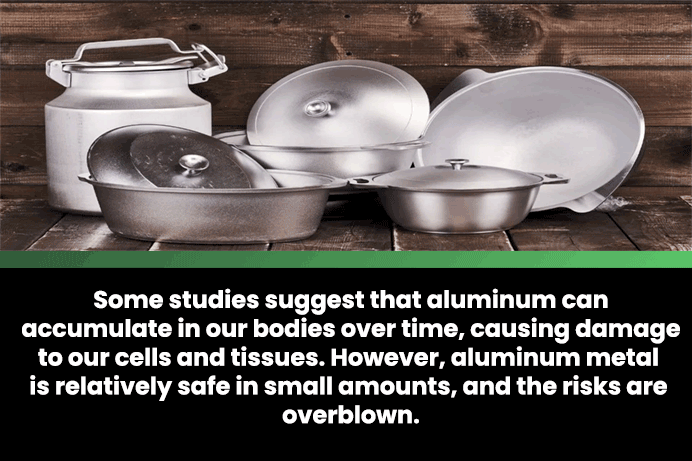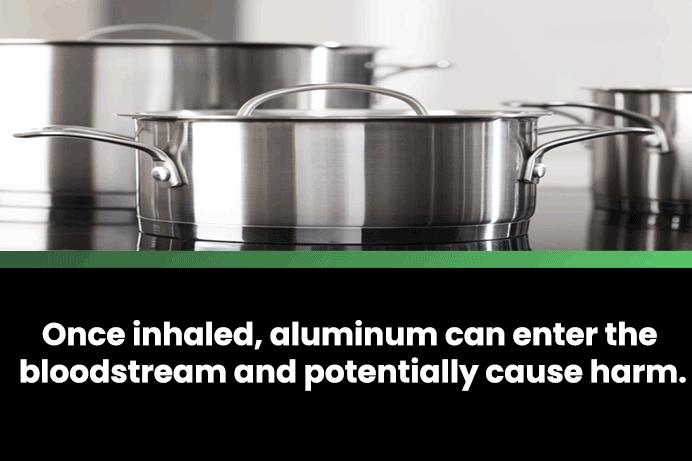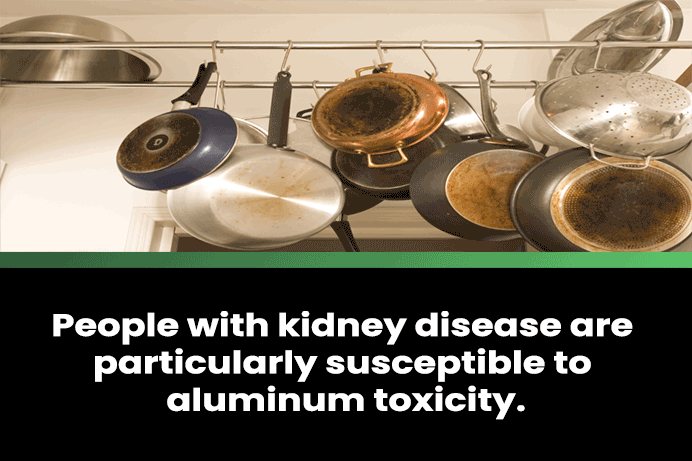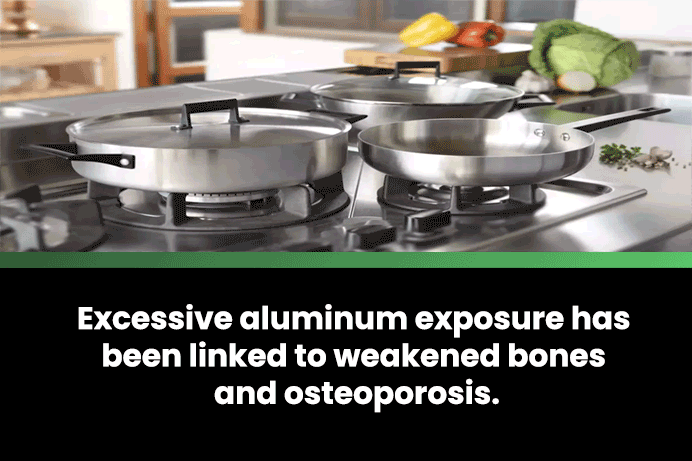How does Aluminum Interact With The Human Body? Surprising Effects Of Aluminum On Our Health
Aluminum is a metal that’s all around us. This versatile material plays a significant role in modern society, and how aluminum reacts on human body, from the kitchen to transportation and medications. there has been a growing concern about the potential impact of aluminum on human health.
So, what’s the real story behind this controversial metal and its interaction with human bodies?
Some studies have suggested that exposure to high levels of aluminum may be linked to severe health conditions. Professor Christopher Exley, the foremost authority on this sort of poisoning, has established a direct causal relationship between it and autoimmune illnesses and Alzheimer’s. Aluminum can also cause cognitive decline, amnesia, and even harm to the central nervous system.
In this blog, we’ll explore the science of aluminum and human health to help you understand the facts about aluminum and human interaction.
Exploring The Intricate Relationship Between Aluminum And Our Health
As one of the most abundant metals on Earth, aluminum is everywhere around us. It’s in our cookware, our soda cans, our cosmetics, and even our medications. But many people don’t realize that aluminum can also interact with our bodies unexpectedly.
Research has shown that exposure to high levels of aluminum can lead to various health problems, including bone disorders, neurological disorders, and even certain types of cancer. But despite these potential risks, aluminum is still widely used in many industries, from construction to manufacturing.
So What Is The True Impact Of Aluminum On Our Health? Is Aluminum Toxic?

It is the question that scientists and medical experts have been exploring for decades, with mixed results.
Effects of Aluminum on The Human Body
Aluminum is abundant and naturally occurring. In moderate amounts, it is not harmful, but large accumulations in the body can negatively affect the nervous system, bones and brain function. Most aluminum consumed through food or drugs is excreted by the kidneys.
Some studies suggest that aluminum can accumulate in our bodies over time, causing damage to our cells and tissues. However, aluminum metal is relatively safe in small amounts, and the risks are overblown.
Regardless of where you fall on this debate, one thing is clear: the relationship between aluminum and our health is complex and multifaceted. It’s a topic that deserves careful attention and continued research as we strive to understand this ubiquitous metal’s potential risks and benefits.
1. Absorption Of Aluminum Through The Skin

Aluminum can be absorbed through the skin, especially if it is in contact with the skin for a prolonged period. It is a concern for people who use products that contain aluminum, such as antiperspirants, and those who work in industries that involve aluminum exposure, such as aluminum smelting.
2. Aluminum Can be Absorbed By Inhalation

Aluminum particles can be inhaled, especially in industries where workers are exposed to aluminum dust or fumes. Once inhaled, aluminum can enter the bloodstream and potentially cause harm.
3. Ingestion Of Aluminum
The most common way people are exposed to aluminum is through ingestion. Aluminum is present in various foods, such as baking powder, processed cheese, and pickles. It is also found in some medications, such as antacids and drinking water. However, the amount of aluminum in these sources is typically not harmful to the human body.
4. Aluminum And Brain Function

Some concern is that aluminum can affect brain function, particularly Alzheimer’s disease. Some studies have suggested that aluminum may accumulate in the brain and contribute to disease development. However, these findings are still under debate and require further research.
5. Exposure to Aluminum and Bone Health
Excessive aluminum exposure has been linked to weakened bones and osteoporosis. Aluminum can interfere with the body’s ability to absorb calcium, essential for strong bones.
6. Aluminum Exposure and Kidney Function

Aluminum can also accumulate in the kidneys, potentially causing damage to these organs. People with kidney disease are particularly susceptible to aluminum toxicity.
Is aluminum toxic?
Aluminum exposure is generally safe but can be toxic at high concentrations. Aluminum dust can cause coughing and abnormal chest X-rays in workers exposed to them on the job.
Why is aluminum dangerous?
Aluminum can have an effect when inhaled. Aluminum contact can cause skin and eye irritation. Exposure to aluminum can produce “metal fume fever.” This illness has flu-like symptoms, including a metallic taste in the mouth, a headache, fever and chills, pains, chest tightness, and cough.
When aluminum enters the body, what happens?
Ingestion of aluminum is typically harmless. Some research indicates that individuals exposed to high levels of aluminum are more likely to acquire Alzheimer’s disease. Yet, contradictory results have been discovered in other research. Scientists are uncertain as to whether aluminum causes Alzheimer’s disease.
What medical benefit does aluminum have?
Aluminum hydroxide is used to alleviate the discomfort of acid reflux, a sour stomach, or a peptic ulcer and to hasten the ulcer’s recovery.
Is aluminum essential for humans?
The human population is frequently exposed to the non-essential metal aluminum. The food supply contains aluminum from natural sources, water used in food preparation, food ingredients, and cooking equipment.
Conclusion
While aluminum is valuable in many industries, it can pose a health risk when interacting with the human body. The most common way people are exposed to aluminum is through ingestion, which can also be absorbed through the skin and inhaled. Aluminum can affect brain function, bone health, and kidney function, among other things. It is essential to be aware of the potential risks associated with aluminum exposure and take appropriate measures to minimize exposure whenever possible.





